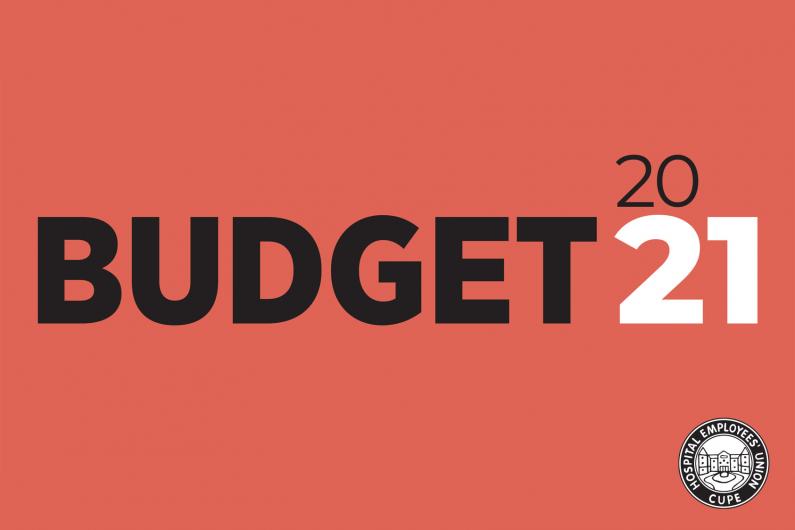
The Hospital Employees’ Union says today’s B.C. budget contains key investments to help strengthen health care services tested by the global pandemic, while promoting greater equity for workers and patients.
The budget includes nearly $600 million over three years to train 3,000 new care aides under a program first announced last year, while continuing to fund the levelling up of wages for seniors’ care workers impacted by the Provincial Health Officer’s single-site order.
“Coming out of this pandemic, we must address the inequities in working and caring conditions that have plagued our long-term care and assisted living sector as a result of privatization and contracting out over the last 20 years,” says HEU’s interim secretary-business manager Mike Old.
“We’re encouraged that government is continuing to level up wages and we look forward to seeing action on their commitment to establish a single-standard for wages, benefits and working conditions. That’s how we can attract and retain workers and provide sustainable high quality care for our elders.”
Today’s budget includes plans, though no current funding allocation, to replace 2,850 outdated publicly-operated long-term beds and add 1,500 new ones. It also allocates $7.8 billion over the next three years towards the government’s expansion and upgrading of hospitals across the province.
“In the coming years, we require an ambitious capital plan to build public and non-profit care homes, while holding for-profit care home operators to account for the public money they receive to provide care,” says Old.
While the budget accounts for massive pandemic-related health spending in 2020-2021, the union is concerned that BC’s health authorities will struggle to maintain service levels to the public with modest budget lifts over the next two years that may not keep up with inflation and population growth.
In response to last year’s investigation by Dr. Mary Ellen Turpel-Lafond into anti-Indigenous racism in the health care system, the government has allocated $45 million in the budget to provide training and education, and the recruitment of Indigenous health care workers.
“Our hospitals should be places of compassion and comfort for all those who seek care. Our union strongly supports investments to address racism and discrimination faced by Indigenous patients and workers,” says Old.
HEU is the largest health care union in the province representing more than 50,000 health care workers employed in a variety of health occupations and settings including hospitals, long-term care homes and in the community.